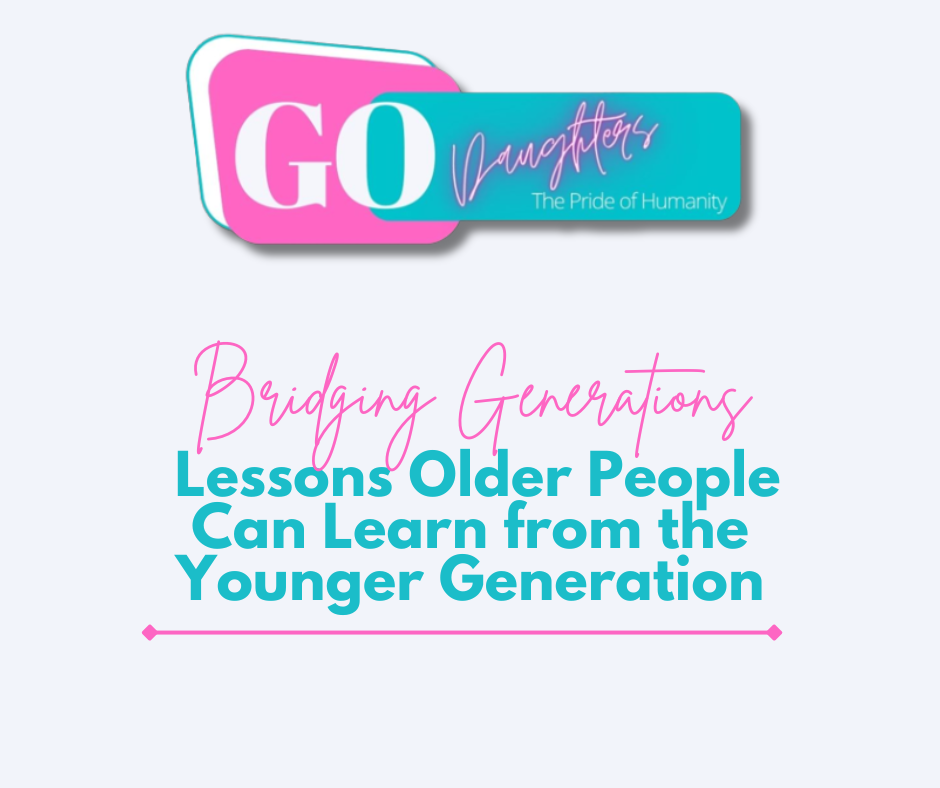
In today’s rapidly changing world, there is much that older people can learn from the younger generation. With advancements in technology, shifting social norms, and evolving perspectives, the younger generation has unique insights and experiences to offer. In this blog, we will explore some valuable lessons that older people can learn from their younger counterparts, fostering a deeper understanding and connection across generations.
Embracing Technological Advancements: Technology plays a significant role in the lives of the younger generation, who have grown up in a digital era. Older individuals can benefit from embracing technological advancements and the opportunities they bring. By learning to use smartphones, social media, and various digital tools, older people can enhance their connectivity, access information easily, and stay engaged with the world around them. The younger generation can serve as patient and knowledgeable guides, imparting their tech-savviness to older individuals seeking to adapt to the digital age.
Adopting a Growth Mindset: The younger generation often exhibits a growth mindset—a belief that abilities and intelligence can be developed through dedication and hard work. Older individuals can learn from this mindset, especially when it comes to adapting to change, pursuing new hobbies, or acquiring new skills. By embracing a growth mindset, older people can overcome limitations and approach challenges with resilience and determination, fostering personal growth and a sense of fulfillment.
Promoting Inclusivity and Acceptance: Younger generations are generally more open-minded and accepting of diversity in all its forms. They have grown up in a world that encourages inclusivity and celebrates individual differences. Older individuals can learn from this by examining their own biases, embracing diversity, and fostering an inclusive mindset. By engaging in conversations with the younger generation, older people can gain valuable insights into different cultures, perspectives, and identities, creating a more harmonious and accepting society.
Embracing a Work-Life Balance: The younger generation has demonstrated a desire to achieve a healthy work-life balance, valuing personal well-being, mental health, and quality time with loved ones. Older individuals, who may have prioritized work throughout their lives, can learn from this and find ways to strike a better balance between work and personal life. Taking time for self-care, pursuing hobbies, and nurturing relationships are important aspects of overall well-being that can contribute to a more fulfilling life at any age.
Embracing Environmental Responsibility: Younger generations have shown a heightened awareness of environmental issues and a commitment to sustainability. They actively seek ways to reduce their carbon footprint, conserve resources, and promote eco-friendly practices. Older individuals can learn from this by embracing sustainable habits such as recycling, reducing energy consumption, and being mindful of their ecological impact. By working together, generations can create a more sustainable future for all.
Conclusion: In a rapidly changing world, the older generation can benefit greatly from the insights and experiences of the younger generation. By embracing technological advancements, adopting a growth mindset, promoting inclusivity, valuing work-life balance, and embracing environmental responsibility, older individuals can enhance their quality of life and contribute to a more connected and sustainable society. Bridging the generation gap allows for a valuable exchange of ideas, fostering mutual understanding and respect across age groups. Let us celebrate the lessons we can learn from each other and build a brighter future together.




